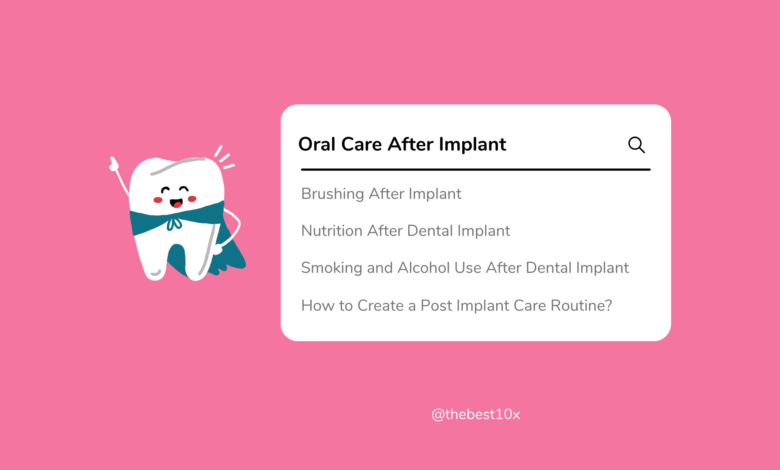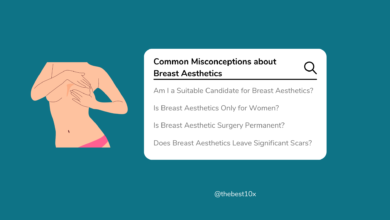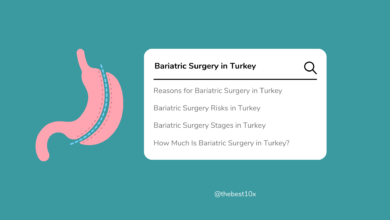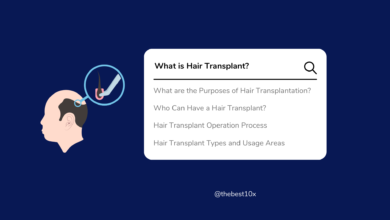
Post Dental Implant Care Instructions
Dental implants are a highly effective and permanent solution to replace one or more lost teeth. However, in order to achieve successful results after implant surgery and to ensure the longevity of the implants, it is necessary to pay great attention to proper oral care. In this article, we will discuss in detail the importance of oral care after dental implants and how it should be done. The secret of a healthy smile and long-lasting implants will be possible with proper and regular care.
The First Days Basics of Post Implant Care
Following dental implant surgery, proper care and precautions are of paramount importance within the first 24 hours. Following these basic care steps precisely is critical for the long-term success of your implants. Let’s take a look at what you should pay attention to in the first 24 hours after implant surgery and practical tips for dealing with potential complications.
Things to Consider in the First 24 Hours After Implant Surgery
After implant surgery, it is a critical period for the healing process of the area where the implants were placed. In the first 24 hours, you should pay special attention to the following points:
- Pain and Swelling Control: Pain and swelling are normal after implant surgery, but you should take prescribed medications regularly to control these symptoms.
- Bleeding Control: You can use sterile gauze swabs to control bleeding at the surgical site by gently biting them. If bleeding is excessive or prolonged, call your dentist.
- Soft Foods: Avoid hard foods in the first few days and stick to juicy, soft foods.
- Smoking and Alcohol Consumption: Avoid smoking and drinking alcohol during the first 24 hours, as these substances can negatively affect the healing process.
Practical Tips for Dealing with Post-Implant Complications
Consider the following tips for preventing or dealing with complications after implant surgery:
- Managing Pain: Keep pain under control by taking prescribed painkillers regularly.
- Cold Application: To reduce swelling, you can use the ice pack with a thin cloth so that it does not come into direct contact with your skin.
- Contact Your Dentist: Contact your dentist if you have any problems or doubts. Share any concerns about implant care.
Careful care after implant surgery and the implementation of these practical tips will go a long way towards ensuring the successful integration and long-term use of your implants.
Brushing After Implant
How to brush your teeth after implants is very important for the health and durability of the implants. Below you can find the steps on how to brush your teeth correctly after implant:
- Choosing the Right Toothbrush: Since implants are sensitive, you should use a toothbrush with soft bristles. Electric toothbrushes can also be effective.
- Brushing with Soft Movements: Avoid applying too much pressure when brushing your teeth. Brush with soft, circular movements. Be gentle to avoid damaging your gums.
- Holding the Toothbrush at the Right Angle: Brush by holding the toothbrush at a 45-degree angle towards your gums. This will help you clean the gums around the implant.
- Attention to the Gum Line: When brushing your teeth, brush carefully, especially around the area where the implant is located and around the gum line.
- Flossing: Use dental floss to clean between teeth. Carefully clean the gums around the implants and the spaces between the implants.
- Specialized Implant Brushes: If your dentist recommends special implant brushes for implant care, consider using them. These brushes can help clean around the implants better.
- Mouthwash: By using a mouthwash recommended by your dentist, you can kill bacteria around the implant and improve your oral hygiene.
- Dentist Checkups: Have your implants checked regularly by a dentist. These checks are critical to maintain the health and durability of the implants.
Remember that implants require regular and careful care just like natural teeth. If you develop the right post-implant tooth brushing and oral care habits, you can ensure that your implants last long and stay healthy.
The Role of Mouthwashes and Antiseptics in Dental Implant Care
In dental implant care, mouthwashes and antiseptics play an important role to support the long-term health and durability of implants.
The Role of Mouthwashes and Antiseptics
- Germ and Bacteria Control: Mouthwashes and antiseptics help kill bacteria and germs around the implant. This reduces the risk of infection and maintains the health of the tissues around the implants.
- Reduction of Inflammation: They help to prevent or reduce inflammation around the implant. This is important as inflammation can lead to loss of the implant.
- Bad Breath Control: Mouthwashes and antiseptics can help prevent bad breath. This provides a boost in social interactions and personal self-confidence.
- Post Implant Surgery Care: After implant surgery, mouthwashes and antiseptics can help clean the surgical site and control germs.
Proper Use of Mouthwashes and Antiseptics
- Follow Your Dentist’s Recommendations: Follow your dentist’s recommendations on which mouthwash or antiseptic to use. Each product may have different ingredients.
- Regular Use: Use your mouthwashes and antiseptics regularly in accordance with the product’s instructions for use. It is generally recommended to use once or twice a day.
- Use for the Recommended Duration: Continue to use mouthwashes and antiseptics for the recommended time. Stopping early can prevent them from being effective.
- Duration of Action of Products: Generally, when using mouthwashes and antiseptics, you may need to keep the product in the mouth for a certain amount of time. Follow this time as indicated on the product label.
- Dentist Checkups: During regular check-ups of your implants, pay attention to your dentist’s specific recommendations and discuss the use of these products.
Mouthwashes and antiseptics can be important tools to support the long-term success of your implants. However, always talk to your dentist before using these products and follow the recommended instructions correctly.
Nutrition After Dental Implant
Nutrition after dental implants is important to support the successful healing of the implant and the creation of a healthy oral environment. Here are nutritional recommendations after dental implants:
- Eat Juicy and Soft Foods: For the first few days, choose juicy and soft foods to keep mouth movements to a minimum. For example, you can consume foods such as soup, puree, yogurt, fruit puree.
- Consume Food Without Chewing Well: Consuming hard foods or foods without chewing too much after dental implant can damage the implant area. Therefore, try to consume food in small bites.
- Avoid Hot Foods: Avoid hot foods in the first few days, as heat can irritate sensitive tissues. Try to consume food at room temperature or cold.
- Limit Alcohol and Nicotine Consumption: Alcohol and smoking after implant surgery can negatively affect healing. If possible, try not to consume these substances for a while.
- Make sure you drink enough fluids: Maintaining good hydration can speed up recovery. Make sure you drink plenty of water.
- Eat a diet rich in vitamin C and protein: Vitamin C and protein are important nutrients that support the healing process. Take care to consume foods rich in protein and vitamin C such as fresh fruits, vegetables, chicken and fish.
Nutrition after dental implants is important to support the successful healing of the implant and the creation of a healthy oral environment. By following these recommendations, you can ensure the longevity and health of your implants.
Smoking and Alcohol Use After Dental Implant
Smoking and alcohol use after dental implants can negatively affect the successful healing of the implants. Here are briefly the effects of smoking and alcohol on implants:
Smoking: Smoking can increase the risk of failed implant surgery. Smoking slows tissue healing, increases the risk of infection and may prevent the implant from fusing with the bone. Therefore, it is recommended to avoid smoking before and after implant surgery.
Alcohol Use: Alcohol can negatively affect the healing process after implant surgery. Alcohol can reduce the blood’s ability to clot and increase the risk of bleeding. Also, alcohol can alter the effects of painkillers or antibiotics. Alcohol should be avoided for a while after implant surgery.
For these reasons, smoking and alcohol use after dental implants should be avoided if possible. Giving up or reducing these habits contributes to the successful healing and longevity of the implants. You can also ensure a healthier healing process by following your dentist’s recommendations.
Prevention of Post-Implant Inflammation
Prevention of post-implant inflammation is critical to the success of implant surgery and the long-term health of implants. To this end, regular and effective oral hygiene habits should be developed. Routine hygiene practices such as tooth brushing, flossing and mouthwash should be performed regularly. In addition, check-ups should be made in accordance with the recommendations of the dentist and necessary treatment plans should be made. Smoking and alcohol use should be avoided and a balanced diet should be followed. Paying attention to these precautions to reduce the risk of infection after implant surgery and to ensure successful healing of the implants increases the success of implant treatment and contributes to the patient’s health.
How to Create a Post Implant Care Routine?
Establishing a post-implant care routine is a critical step in maintaining the long-term success and health of implants. First, you should listen carefully to your dentist’s recommendations. They will create a care plan based on your specific recommendations. Oral hygiene habits form the basis of this routine. You should develop the habit of brushing and flossing at least twice a day. The choice of toothbrush is important; you should use a toothbrush with soft bristles and brush the teeth and implants without too much pressure. You should brush at the right angle to avoid damaging the gums. It is important to hold the toothbrush at a 45-degree angle and brush towards the gums. You should use dental floss to clean between the teeth and carefully clean the spaces between the implants. The use of mouthwash can also improve your oral hygiene. Finally, regular dental check-ups are essential to maintain the health and durability of the implants. An implant care routine is created by following these steps and, when practiced regularly, will ensure the long-term health of your implants.




